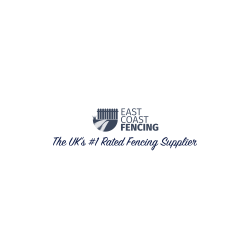How Long Does Garden Fencing Last?

When considering the addition or replacement of fencing in our gardens, one of the critical questions we often find ourselves asking is, "How long will this garden fencing last?" Given the investment in both time and money, it's a question well worth exploring in detail.
Garden fencing not only serves as a boundary marker but also as a feature that can aesthetically enhance our outdoor space. It offers privacy, security, and, depending on the choice, can provide a haven for wildlife. With various materials available, including wood, vinyl (PVC), composite, and metal, the lifespan of garden fencing can vary significantly.
Wooden Fencing
Traditionally, wooden fencing is a popular choice for many gardens across the UK, prized for its natural appearance and the warm, rustic charm it can bring to any outdoor space. However, its longevity can be influenced by several factors:
- Type of Wood: Softwoods, like pine, are more affordable but tend to have a shorter lifespan compared to hardwoods such as oak or cedar.
- Treatment: Treated wood is more resistant to rot, insects, and fungal infections and can significantly extend the life of a fence. Properly treated timber can last around 15-20 years, though this can vary with the weather conditions and soil type in your garden.
- Maintenance: Regular maintenance including painting, staining, or sealing can help protect the wood from the elements and extend its life.
Vinyl (PVC) Fencing
Vinyl fencing, known for its durability and low maintenance, is becoming increasingly popular. It doesn't rot, rust, or require repainting. The expected lifespan of vinyl fencing can be upwards of 20 to 30 years, and many manufacturers offer significant warranties, reflecting the material's longevity.
Composite Fencing
Composite fencing, a mix of wood fibres and plastic, is designed to mimic the look of wood while offering the durability of synthetic materials. It's resistant to rot and pests and doesn't require much upkeep. Composite fencing can last between 20 and 25 years, making it a worthwhile consideration for those looking for a balance between aesthetics and longevity.
Metal Fencing
When it comes to durability, metal fencing is hard to beat. Wrought iron and aluminium are popular choices, with aluminium being rust-resistant and incredibly low maintenance. Wrought iron, while needing more care to prevent rust, can last for decades if properly maintained. Metal fencing can easily last more than 30 years, with some aluminium options coming with a lifetime warranty.
Factors Affecting Longevity
Regardless of the material, several external factors can affect the lifespan of your garden fencing:
- Weather Conditions: Extreme weather, be it heavy rain, strong winds, or excessive moisture, can all negatively impact fencing materials.
- Installation Quality: Proper installation is crucial; poorly installed fencing can be more susceptible to damage and have a shorter lifespan.
- Pest Infestation: Wood fences, in particular, are vulnerable to pests such as termites and wood-boring beetles.
- Maintenance: Regular maintenance can vastly extend the life of any fencing material by addressing issues before they lead to significant damage.
Conclusion
In essence, the question of how long garden fencing will last depends on the material chosen, the environment, and how well the fence is maintained. While wood offers a classic appearance, alternatives like vinyl, composite, and metal can provide longer-lasting solutions with less maintenance. Regardless of your choice, investing in quality materials and professional installation, along with committing to ongoing maintenance, will ensure your garden fencing stands the test of time, providing privacy, security, and beauty to your garden for years to come.













Leave a Comment